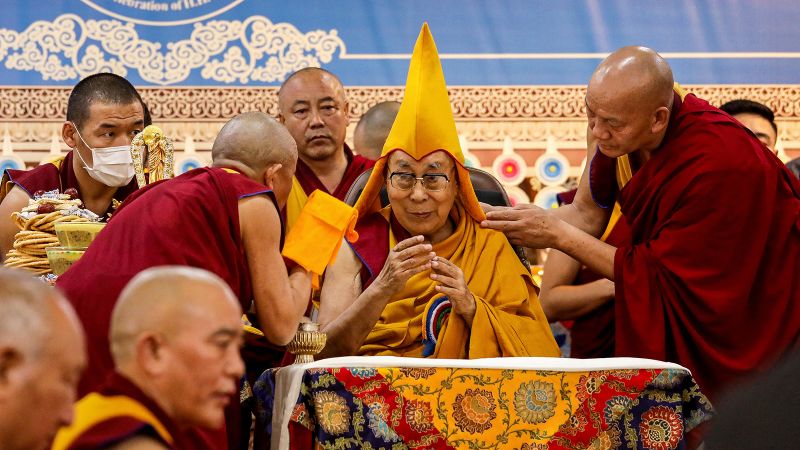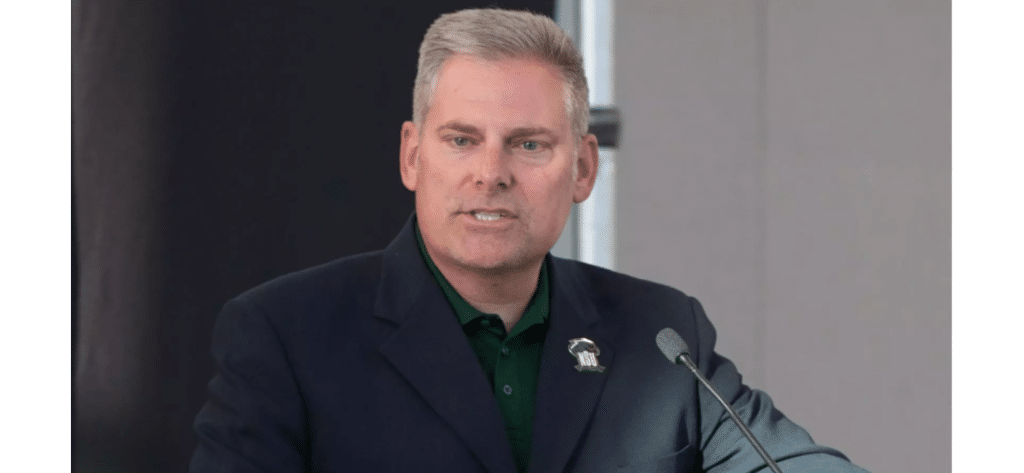Dalai Lama Confirms Succession Plan Amid Tensions with China

The Dalai Lama has confirmed that he will have a successor after his passing, ensuring the continuation of a centuries-old tradition crucial to Tibetan Buddhism. This announcement, made on Wednesday via a video message to religious elders in Dharamsala, India, underscores the ongoing conflict with China’s Communist Party over Tibet’s future. The Nobel Peace laureate, who has resided in Dharamsala since fleeing a failed uprising against Chinese rule in 1959, emphasized the importance of maintaining the institution of the Dalai Lama.
“I am affirming that the institution of the Dalai Lama will continue,” he stated, highlighting the numerous requests from Tibetans and Tibetan Buddhists for this assurance. He further asserted that the Gaden Phodrang Trust holds the exclusive authority to recognize his future reincarnation, dismissing any external interference. The procedures for identifying the next Dalai Lama will adhere to traditional practices, he added.
The Historical Context of the Dalai Lama’s Succession
The Dalai Lama’s role has been pivotal in Tibetan Buddhism and politics for centuries. Traditionally, the search for a new Dalai Lama involves a complex process of identifying a child believed to be the reincarnation of the previous leader. This process is deeply spiritual and rooted in Tibetan customs, which China’s government has historically disputed.
In recent years, the Dalai Lama has indicated that around the age of 90, he would consult with high lamas and the Tibetan public to assess whether the institution should persist. This recent announcement, coming just days before his 90th birthday, intensifies the looming battle over his succession between the Tibetan government-in-exile and the Chinese Communist Party.
China’s Stance and Potential Conflicts
China’s government has long asserted its authority over the succession of the Dalai Lama, insisting that it holds the right to approve any reincarnation. This stance is part of a broader strategy to maintain control over Tibet, a region it has governed since 1950. The Chinese Communist Party’s involvement in religious matters has been a source of tension, as it contrasts sharply with Tibetan spiritual traditions.
“The next Dalai Lama will be born in the ‘free world’ outside China,” the Dalai Lama wrote in a memoir published in March, urging his followers to reject any candidate chosen by Beijing.
This declaration sets the stage for a potential emergence of two rival Dalai Lamas: one recognized by the Tibetan spiritual community and another endorsed by the Chinese government. Such a scenario could deepen the division between Tibetans and the Chinese state.
Expert Opinions and Future Implications
Experts in Tibetan affairs suggest that the Dalai Lama’s announcement is a strategic move to preserve Tibetan cultural and religious autonomy. According to Dr. Lobsang Sangay, a prominent Tibetan scholar, “The Dalai Lama’s decision to ensure a successor outside China’s influence is crucial for maintaining the integrity of Tibetan Buddhism.”
Meanwhile, international observers are closely monitoring the situation, as the succession could have significant geopolitical implications. The U.S. and other Western nations have previously criticized China’s policies in Tibet, and the Dalai Lama’s succession could become a focal point for international diplomacy.
As the Dalai Lama approaches his 90th birthday, the world watches with anticipation. The spiritual leader’s decision not only impacts Tibetan Buddhism but also symbolizes the broader struggle for religious and cultural identity in the face of political pressure.
Looking Ahead
The Dalai Lama’s succession plan is likely to provoke a strong response from China, potentially leading to increased tensions in the region. The international community’s role in supporting a peaceful resolution will be critical in the coming years. As the Tibetan spiritual leader continues to advocate for his people’s rights, his legacy will undoubtedly shape the future of Tibetan Buddhism and its followers worldwide.
In conclusion, the Dalai Lama’s recent announcement marks a pivotal moment in the ongoing narrative of Tibetan autonomy and religious freedom. The next steps in this unfolding story will be closely watched by both supporters and critics, as the world awaits the emergence of the next Dalai Lama.






